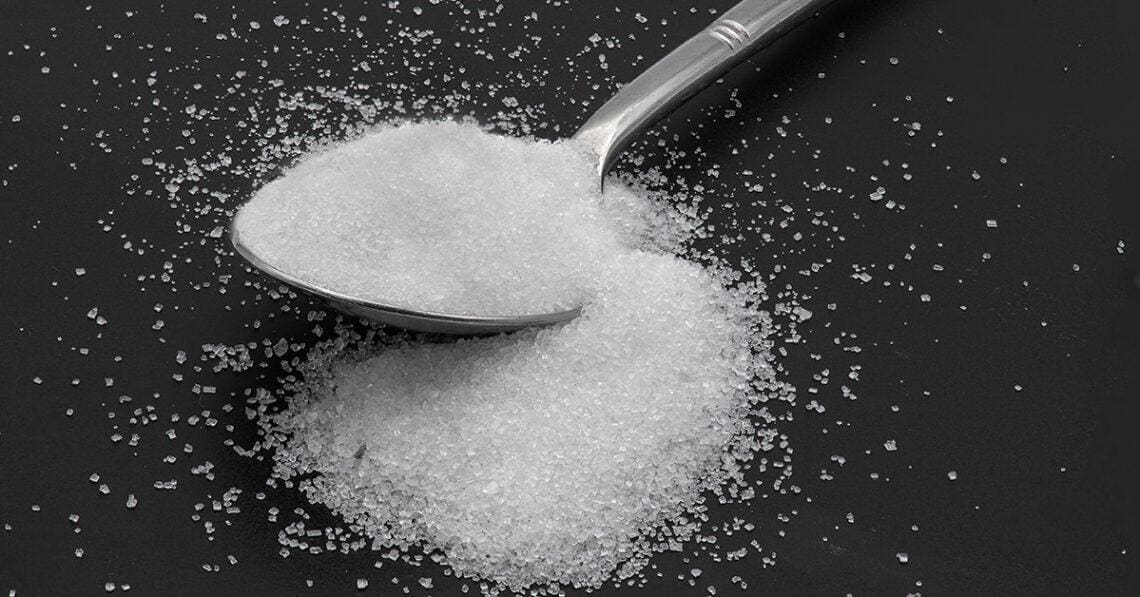By adding incentives to encourage self-disclosure of corporate misconduct, the DOJ signaled a major change in its approach. And while many of the changes are welcome, Blank Rome’s Inbal P. Garrity and Amelia Clegg wonder if the revisions are sweet enough.
The DOJ’s Criminal Division may not have had a change of heart when it comes to corporate criminal enforcement, but it arguably has had a change of approach. In a January speech at Georgetown University, Assistant Attorney General Kenneth A. Polite Jr. announced revisions to the Criminal Division’s corporate enforcement policy (CEP), which essentially amount to more incentives for corporations to self-police and self-report. These changes, the first since 2017, apply to all corporate criminal matters handled by the Criminal Division, not just FCPA cases, to which the prior CEP applied.
The new revisions to the CEP provide greater incentives for companies to self-disclose, fully cooperate and timely and appropriately remediate. However, as is often the case, the devil is in the details — and the details of how the CEP will be applied remains unknown.
DOJ Set to Deploy More Carrots in Corporate Enforcement
Companies accused of corporate crimes will have more incentives to disclose misconduct they uncover and cooperate with federal investigations, Assistant Attorney General Kenneth Polite Jr. said Tuesday.
Read moreOverview of changes
On the surface, the DOJ has softened its “Do not pass Go and do not collect $200” approach with three new inducements for companies to self-disclose corporate misconduct:
Declination despite aggravating factors
Under the prior CEP, even if a company voluntarily self-disclosed, fully cooperated, and timely and appropriately remediated, it would not benefit from the presumption of a declination if aggravating factors were present. Although not fully delineated, AAG Polite cited executive management involvement or criminal recidivism as examples of “aggravating factors.” However, under the new CEP, aggravating factors do not prohibit a declination. Rather, when aggravating factors are present, prosecutors may determine that a declination is still appropriate if the company meets three requirements:
- Immediate voluntary self-disclosure
- An effective compliance program
- Extraordinary cooperation
Potential fine reductions of up to 75%
If a company voluntarily self-discloses, fully cooperates, and timely and adequately remediates, but the DOJ nevertheless determines that a declination is not appropriate due to aggravating circumstances, the DOJ may now grant fine reductions of up to 75% of the fine range specified by the U.S. sentencing guidelines.
Potential fine reduction of up to 50%
Indicating that cooperation is distinct from self-disclosure, the DOJ has now doubled the maximum fine reduction for companies that fail to voluntarily self-disclose but still fully cooperate and timely and appropriately remediate.
Areas requiring clarity
Without the benefit of cases resolved under the new CEP, much remains uncertain. The DOJ has not committed itself to concrete examples of what would enable corporations to benefit from the revisions. But AAG Polite did offer some guidance, as set out below:
Immediacy
“Sentence first, verdict afterwards”
The Queen of Hearts, Alice in Wonderland, Lewis Carroll
One of the requirements for obtaining a declination despite aggravating factors is that the corporation makes a voluntary disclosure “immediately upon the company becoming aware of the allegations of misconduct.” Not surprisingly, the revised CEP does not define “immediately,” and the decision of whether and when to disclose is one that almost certainly would need to be made before a company has a full grasp of all the facts.
Interestingly, the revised CEP states that a company should report “immediately upon the company becoming aware of the allegations of misconduct,” whereas the prior CEP described “a reasonably prompt time after becoming aware of the offense” (emphasis added). Time will tell whether this change in language is a mere change in syntax, or whether it in fact suggests a substantive shift in emphasis from awareness of the facts of the offense versus awareness of mere allegations.
Certainly, even now, a company investigating alleged misconduct does not have the luxury of completing a full internal investigation before deciding whether to self-report. Presumably, “becoming aware of the offense” happens during the course of an investigation, after facts are gathered and analyzed, not before an investigation even gets underway. But now, in order to fulfill the immediacy requirements under the revised CEP, companies will need to consider whether self-reporting credit is contingent on fast-tracking the decision to disclose immediately after learning of non-public allegations, whether that is via an internal hotline, a complaint to a manager or any other means. Although how much time constitutes “immediately” under the revised CEP will be highly fact-specific, it is likely that a company will have only a short window of time to decide whether to self-report and still reap the benefits of claiming that it self-reported.
This potentially shortened window of time suggests an interesting trend on both sides of the Atlantic toward requiring companies to report first and investigate later. In the UK, the Serious Fraud Office (SFO) already encourages companies to consult with the SFO “before interviewing potential witnesses, or suspects, taking personnel/HR actions or taking other overt steps.” It appears that the DOJ is mirroring the emphasis in the UK on preemptive action.
Voluntary self-disclosure
“‘Tis not the many oaths that make the truth, But the plain single vow that is vow’d true.”
All’s Well That Ends Well, Act IV, Scene 2
The revised CEP also adds language in the definitions section regarding voluntary self-disclosure. Under the prior CEP, “voluntary self-disclosure” was defined as “occurring ‘prior to an imminent threat of disclosure or government investigation’” and “within a reasonably prompt time after becoming aware of the offense” (consistent with U.S.S.G. § 8C2.5(g)(1)).
The revised CEP keeps the same language but adds that “[t]he Criminal Division encourages self-disclosure of potential wrongdoing at the earliest possible time, even when a company has not yet completed an internal investigation, if it chooses to conduct one.” It adds that a self-disclosure is only voluntary if “[t]he company had no preexisting obligation to disclose the misconduct.” Tension remains between “within a reasonably prompt time after becoming aware of the offense” and “immediately upon becoming aware of the allegation,” which will need to be managed by a company facing the decision of whether and when to self-disclose. (Of course, in scenarios where the company is aware the allegations are about to be made public, there is likely little doubt as to what “immediately” means.)
Additionally, the DOJ has not provided guidance on what constitutes a “preexisting obligation” to disclose the misconduct but presumably would include such things as obligations set forth in Deferred Prosecution Agreements the company may have previously entered into with the DOJ. It is unclear whether any preexisting obligation is limited to U.S. law or encompasses obligations under the laws of other jurisdictions.
Extraordinary cooperation
“The difference between ordinary and extraordinary is that little extra.”
Jimmy Johnson
What constitutes “extraordinary” cooperation and what distinguishes it from “full” cooperation? AAG Polite’s advice is to “think like a prosecutor.” He stated that prosecutors value “when an individual begins to cooperate immediately and consistently tells the truth; individuals who allow us to obtain evidence we otherwise couldn’t get, like quickly obtaining and imaging their electronic devices or having recorded conversations; cooperation that produces results, like testifying at a trial or providing information that leads to additional convictions.” In other words, the more useful the information is to the DOJ, the more likely it is to be considered cooperation.
AAG Polite also stated that “to receive credit for extraordinary cooperation, companies must go above and beyond the criteria for full cooperation set in our policies — not just run of the mill, or even gold-standard cooperation, but truly extraordinary.” Factors that the Criminal Division would consider when determining whether a company’s cooperation and/or remediation are “extraordinary” include immediacy, consistency, degree and impact.
Polite revealed one clue as to how companies can demonstrate cooperation and compliance towards the end of his speech when he stated that the DOJ will carefully examine “how companies discipline bad actors and reward the good ones.” The DOJ recently entered into a plea agreement with a bank, which required it to implement evaluation criteria related to compliance in its executive review and bonus system, “so that each bank executive is evaluated on what the executive has done to ensure that the executive’s business or department is in compliance with the compliance programs and applicable laws and regulations.” The agreement also noted that any executive with a failing score in compliance would be ineligible for any bonus for that year.
Self-reporting and cooperation
“The first thing for you to understand is that in this place there are no martyrdoms.”
O’Brien to Winston Smith, 1984, George Orwell
While Polite emphasized the importance the CEP places on self-disclosure, he noted that the new changes “provide incentives for companies that do not voluntarily self-disclose but still fully cooperate and timely and appropriately remediate.” In those instances, the Criminal Division will now generally “recommend up to a 50% reduction off of the low end of the Guidelines fine range[—]twice the maximum amount of a reduction available under the prior version of the CEP.” The DOJ has not lost the focus it has on holding individuals accountable. Companies cannot shield individuals, even those in senior management, and expect to receive cooperation credit.
Attorney-client privilege
One pressing consideration when a company does fully cooperate is the handling of attorney-client privilege. AAG Polite noted that “the government will not affirmatively direct a company’s internal investigation, if it chooses to do one.” However, there is a potential problem for companies who do cooperate: does full cooperation require a company to completely waive attorney-client and work-product privileges with respect to their internal investigation? The District of New Jersey recently found that a corporation waived attorney-client privilege in its attempt to obtain a declination from the DOJ and the SEC in an FCPA matter — “[b]y disclosing 333 information to the Government while under threat of prosecution, [the company] handed these materials to a potential adversary and destroyed any confidentiality they may have had, undermining the purpose of both attorney-client and work-product privileges.” United States v. Coburn, No. CV219CR00120KM, 2022 WL 357217, at *7 (D.N.J. Feb. 1, 2022), on reconsideration in part, No. CV219CR00120KM, 2022 WL 874458 (D.N.J. Mar. 23, 2022).
Companies that undertake internal investigations should seek advice from outside counsel about the extent to which they can produce documents to the DOJ to signal full cooperation while simultaneously protecting attorney-client and work-product privilege. Once a waiver, always a waiver, such that if and when attorney-client privilege is waived in order to “fully cooperate” with the DOJ, the privilege is waived to the same extent for future third parties, including future litigants bringing suit against the company.
Conclusion
The CEP now has broader applicability beyond FCPA actions, demonstrating that the DOJ is striving to figure out how to get companies of all sizes, throughout the United States and across all industries, to swallow the ever-larger pill of compliance. The DOJ appears to have decided that if it wants companies to take their medicine by improving their self-policing efforts and voluntarily self-reporting when corporate misconduct arises, it needs to offer a spoonful of sugar in the form of fine reductions and declinations.
The decision of whether to self-disclose has always been a fraught one for companies. The revised CEP seemingly strives to make it more appealing for companies to decide to self-report and to self-report now. The revised CEP is more forgiving in some respects, especially in terms of declinations. However, the DOJ resolutions with companies in coming months will hopefully help answer the open questions. One point that is clear in the revised and expanded CEP, is the importance of what AAG Polite termed “robust compliance on the front end,” which enables a company to identify misconduct. It would behoove companies to undertake evaluations of their compliance programs to ensure they are, in fact, both robust and enforced.




 Inbal P. Garrity
Inbal P. Garrity Amelia Clegg
Amelia Clegg





